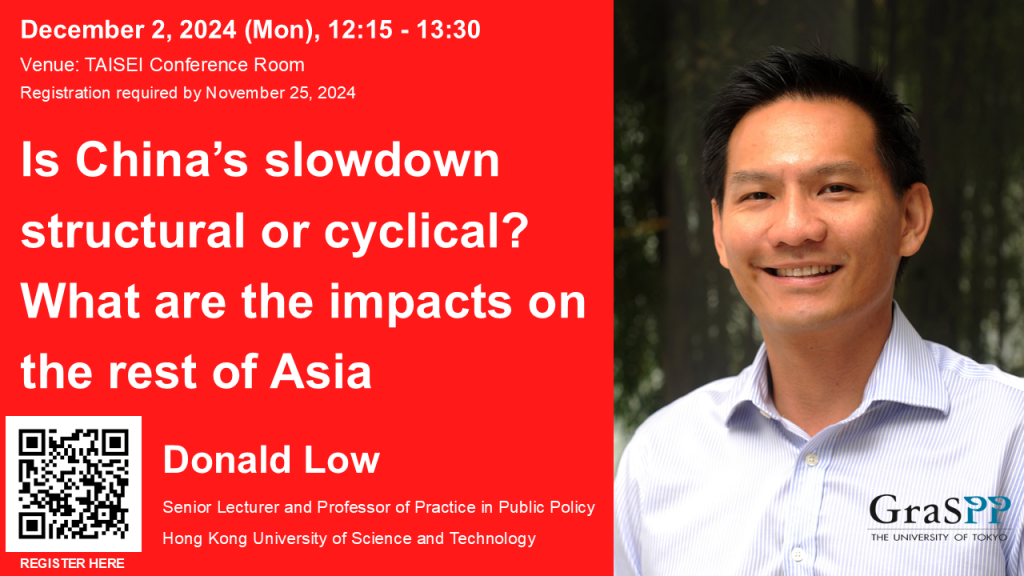
The Chinese economy has slowed considerably since pandemic restrictions were lifted at the end of 2022. High debt levels, declining property sales and prices, excess capacity in many industries, falling foreign investments, and tepid consumption growth have contributed to a weak recovery and deflationary pressures.
These problems have drawn many comparisons with Japan’s lost decades of the 1990s and 2000s when the economy struggled with a prolonged process of debt deleveraging and deflation. In China, the government’s response to the slowdown has been to launch an ambitious plan, emphasising the technologies and industries of the future, to transform the economy, raise productivity, and enhance self-sufficiency. Amid the slowdown at home, Chinese firms are also investing heavily in the rest of emerging Asia – not only in infrastructure, but also in manufacturing and services.
Can China Inc’s investments in the rest of Asia raise the region’s growth potential? And how would China’s quest to dominate “new quality productive forces” affect other countries in Asia?
This seminar is open widely to the UTokyo faculties and students.
Date & Time
Monday, December 2, 2024, 12:15 – 13:30
Venue
TAISEI Conference Room, 14th floor, International Academic Research Building (MAP)
Registration
Needed. Please register from the link below.
Speaker
Donald Low
Senior Lecturer and Professor of Practice at the Hong Kong University of Science and Technology
Donald Low is a Senior Lecturer and Professor of Practice at the HKUST Institute for Public Policy, as well as Director of Leadership and Public Policy Executive Education (LAPP) at the Hong Kong University of Science and Technology. He is an accomplished consultant and lecturer in economics and behavioural economics, decision-making and risk analysis, inequality and social policy, complexity in public policy, organisational behaviour, and the politics and governance of Singapore.
Donald has served in or consulted with public, private, higher education and non-profit organisations. Prior to his current appointment, Donald was the Associate Dean for Executive Education and Research at the Lee Kuan Yew School of Public Policy, National University of Singapore. Besides leading the School’s executive education department, he also headed its case study unit. Donald also served nearly 15 years in the Singapore government as a member of the Administrative Service. During that time, he established the Centre for Public Economics at the Civil Service College to advance economics literacy in Singapore public service. He also held senior positions at the Ministry of Finance and the Public Service Division.
Donald is the editor of Behavioural Economics and Policy Design: Examples from Singapore (2011), a pioneering book that details how the Singapore government has applied ideas from behavioural economics in a number of policy domains. His best-selling 2014 book, Hard Choices: Challenging the Singapore Consensus, raises searching questions about the long-term viability of many aspects of governance in Singapore. He argues that a far-reaching rethinking of the country’s policies and institutions is needed in light of new socioeconomic, demographic and political realities. Such rethinking is necessary even if weakens the very consensus that enabled Singapore to succeed in its first 50 years.
Donald holds a double first in Politics, Philosophy and Economics from Oxford University and a Master’s in International Public Policy from The Johns Hopkins University’s School of Advanced International Studies.
Donald stepped down as Director of IEMS in March 2023.
Inquiries to:
GraSPP Research Seminar Desk
graspp_eventinfo””pp.u-tokyo.ac.jp
*Please replace “” with @.

